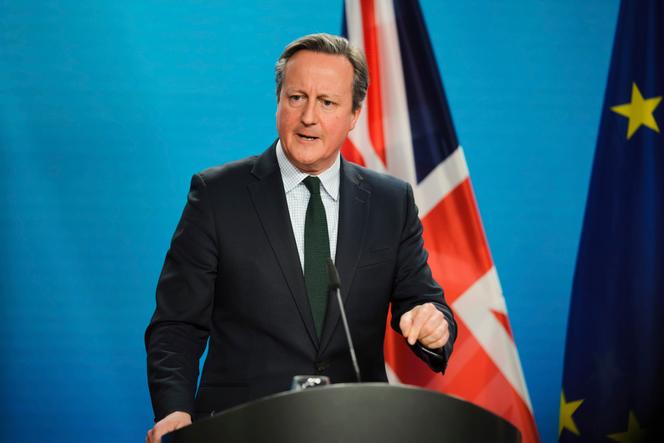


British Foreign Secretary David Cameron said he opposes sending Western troops to Ukraine, even for training missions, in an interview with German daily Süddeutsche Zeitung published on Saturday, March 9. Cameron said training missions are best carried out abroad, noting that Britain has trained 60,000 Ukrainian soldiers that way. Placing foreign soldiers in Ukraine would provide targets for Russia, he said.
French President Emmanuel Macron set off a stir among his allies on February 26 when he did not exclude sending Western troops to Ukraine to help it fend off Russia's invasion. Britain later confirmed that it had sent small units to Ukraine to help with medical training, but a spokesperson for Prime Minister Rishi Sunak said the country does not foresee large-scale deployments.
On Friday, French Defense Minister Sébastien Lecornu said there were no plans for the moment to send combat troops, but that Ukraine's allies could consider specific training or de-mining missions.
In his interview with Süddeutsche Zeitung, Cameron said Ukraine needed more long-range weapons and that he was willing to work with Berlin to lift its reticence to supplying German-made Taurus cruise missiles.
Cameron wouldn't directly address suggestions that Berlin provide Britain with Taurus missiles to free up the UK to send more British-French Storm Shadow cruise missiles to Ukraine. Berlin has refused to deliver Taurus missiles to Ukraine, fearful that its 500-kilometre (310-mile) range would be used to hit targets deep into Russian territory.
Since last May, France and Britain have supplied Ukraine with Storm Shadows – called Scalp in French and with a 250-kilometer range – while the United States has sent ATACMS, which have a range of 165 kilometers.
Poland's foreign minister said Friday the presence of NATO forces "is not unthinkable" and that he appreciates the French president for not ruling out that idea. Radek Sikorski made the observation during a discussion marking the 25th anniversary of Poland's accession to NATO in the Polish parliament Friday, and the Foreign Ministry tweeted the comments later in English.
Poland's Prime Minister Donald Tusk was among those European leaders who initially ruled out sending troops to Ukraine after Macron's remarks, saying: "Poland does not plan to send its troops to the territory of Ukraine."
But less than two weeks later Sikorski struck a different tone. "The presence of #NATO forces in Ukraine is not unthinkable," he said, according to the Foreign Ministry's tweet. He said he appreciated Macron's initiative "because it is about Putin being afraid, not us being afraid of Putin."
